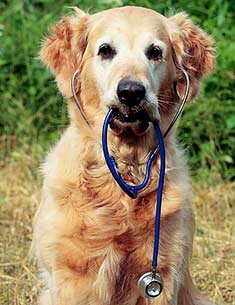
March is Poison Prevention Month and for over 50 years, the third week in March has been observed as National Animal Poison Prevention Week. “This week is all about bringing knowledge and awareness to all pet owners regarding the many poisonous hazards in and around one’s own home, and what to do if you know or suspect that your pet has ingested something that is potentially harmful.” The Wellness Blog has a great article on poison prevention and actions to take if you suspect your pet has been poisoned. Here’s just a brief outline of their blog – definitely worth reading in its entirety here.
What is potentially harmful to pets?
In the Kitchen
Most people know chocolate (especially dark chocolate) is harmful to pets. But here are a few more things you don’t want your dog eating:
Alcoholic Beverages
Apple Seeds
Apricot Pits
Cherry Pits
Candy containing the sweetener Xylitol
Grapes
Hops
Macadamia Nuts
Moldy Foods
Some Mushrooms
Mustard Seeds
Onions and Onion Powder
Peach Pits
Potato Leaves and Stems.
Raisins
Rhubarb Leaves
Salt in large quantities
Tea
Tomato Leaves and Stems
Walnuts
Yeast Dough
Around the House
Poisonous Plants. There’s an extensive list of poisonous plants here.
All medications should be stored in a secure place at all times to avoid any accidental ingestion by your curious pet. And be sure to store your pet’s medications separately from your own.
Cleaning, auto, and gardening supplies should be locked away from curious pets. Just as you’d child-proof medicines and cleaning supplies from kids, you want to do the same for your pets.
Miscellaneous Household Items That Are Toxic to Your Pet
Batteries
Potpourri
Insecticides
Rodenticides
Plant fertilizer/plant food
Antifreeze
Yarn, rubber bands, dental floss
Certain mulches, like cocoa mulch and rubber mulch, are toxic to your pets.
How to Handle an Emergency
“If you know that your pet has ingested something poisonous, or if you are suspicious due to your pet displaying signs and symptoms such as – fever, diarrhea, vomiting, muscle tremors and/or lack of coordination – contact your emergency veterinary service immediately. You can also call the ASPCA Animal Poison Control Center Hotline 24 hours a day, seven days a week for a possible fee of $65 per case.”
“National Animal Poison Prevention Week is a great time to educate ourselves on how to keep our pets safe from potentially harmful materials that can be found right inside our own homes. The moral of the story? Curiosity really can kill the cat – or dog, if we aren’t careful! Keep your pet safe!”
These are by far not the only foods and products that can potentially harm your dog. There are many sites on the Internet that provide extensive lists and what effects these foods and chemicals may cause. Earth Clinic is only one of many.
Earth Clinic
The Humane Society
Pet Poison Helpline 855-764-7661
ASPCA
Pet Education








